We all know how hard it is to have conversations in today’s social, political, and racial climate - especially as we engage with those whom we are most close with or consider themselves Christians, but whose views are expressed in dramatically different ways than our own. As we simultaneously engage with our neighbors and locate ourselves in the unfolding story of God, we recognize that stories shape our faith, our lives, our culture. Narratives told, and passed down, are told from a particular perspective, which means they are not the whole story. Dominant narratives are those of the dominating culture - usually that of the Settlers - and are meant to keep people at odds with one another and injustice perpetuated through an imbalance of power. Exposed and under various pressures, stories illuminate the volatile political climate, racism and racist policies, ongoing colonization in the world, and the history of silencing or erasing of other human beings. In this series, we survey the Old and New Testaments and examine how familiar narratives might re-align with the story God is narrating in the world, listening to stories of Scripture addressed by those who are often silenced. We consider how power is distributed, identifying the good news, and how a more full story and change of perspective brings each of us, and the body of Christ, to conversations today that more graciously connect us to God, neighbor, and Creation. In short, we are unsettling the story, exposing unsettling truths, and being unsettled ourselves.
WEEK BY WEEK:
Please note the schedule for in person/outdoor Gatherings and Zoom Gatherings. All in-person Gatherings will be outdoors as weather allows. Please email us for more information.
IN-PERSON GATHERING GUIDELINES
September 13/Zoom: Isaiah 53.4-5 – Intro/Suffering Servant & Unsettling Truths
September 20/In-Person: Genesis 11.3 – Petropolis Babel
September 27/Zoom: Duet. 7.1-2. - Land of the People?
October 4 /In-Person: 2 Chronicles 2.1-2 – Unmasking State Theology
October 11/Zoom: Ezra 10.10-11 – The Sent Away
October 18/In-Person: Matthew 2.1-2. Word of Liberation
October 25/Zoom: Matthew 28.18-19/Luke 4.5-6 – Great Commission & Reclaiming People Power
November 1/In-Person: John 1.14 - For God So Loved
November 8/Zoom: John 19.9-10 - Unholy Alliances
November 15/In-Person: Romans 13.1-2 - Resistance, with God
November 22/Zoom: Titus 1.12-13,15 - Unsettling Language
DISCUSSION PROMPTS:
- What did you bring to the text today?
- Where and how do you see God re-narrating the story from this new perspective?
- What colonizing language and action do we have a hard time shedding?
- Discuss your connection to the land and the people.
- How are you impacted by the good news discovered in today’s unsettling story?
- In what way is the Spirit prompting you to relocate yourself in the story, unsettled and embodying the love of Jesus in the world?
- What does an unsettled resistance look like for the body of Christ today?
RESOURCES:
The Christian Imagination - Willie James Jennings
Unsettling Truths - Mark Charles and Soong-Chan Rah
Unsettling the Word - Edited by Steve Heinrichs
Native - Kaitlyn B. Curtis
A NOTE ABOUT MUSIC:
Praise music both reflects and informs our beliefs - it is liturgy set to music. As we work together at Trinity to unsettle the story, we also want to work to unsettle the songs we choose to sing or listen to in our Gatherings. We will explore, via the Indy Trinity worship playlist (on Spotify), music that originates from various social and cultural locations. Utilizing music from different contexts is an act of hospitality, solidarity, and mutuality*, and there is so much we can learn from others when we decenter the dominant narrative.
We also want to highlight music created by groups that actively pursue justice. Conversely, we do not want to focus our attention on songs created by organizations that have actively demonstrated an unwillingness to listen to people who have been marginalized. There may be songs we choose not to sing together anymore in our Gatherings, but our commitment presents us with the opportunity to explore music we would otherwise not have heard. Metaphorically, we're expanding our liturgical palate through music. The quest to find songs for our shared playlist continues, week after week, to reveal a wealth of earnest, humble worship. We have so much to gain from unsettling our music!
*See The Next Worship by Sandra Maria Van Opstal

